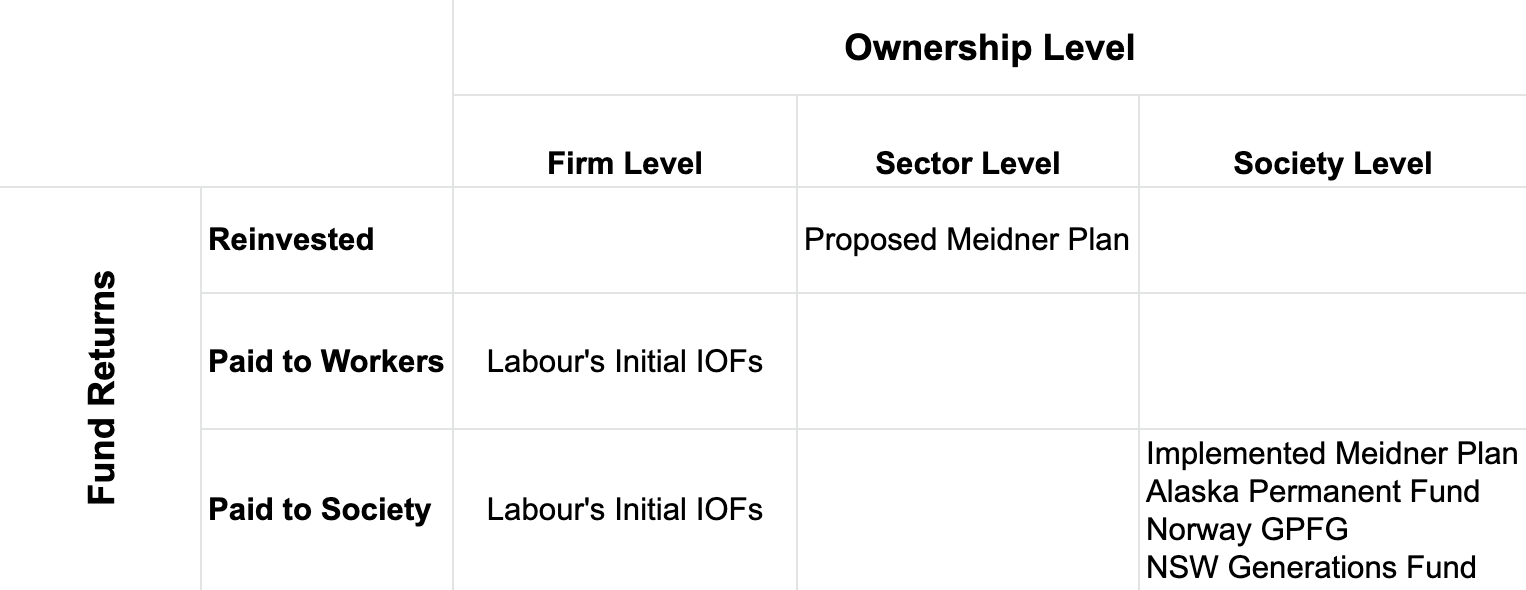The Washington Post’s Jeff Stein revealed yesterday that Bernie Sanders is working on a proposal that would require companies to issue shares to dividend-paying worker funds:
Sanders said his campaign is working on a plan to require large businesses to regularly contribute a portion of their stocks to a fund controlled by employees, which would pay out a regular dividend to the workers. Some models of this fund increase employees’ ownership stake in the company, making the workers a powerful voting shareholder. The idea is in its formative stages and a spokesman did not share further details.
The precise details of Sanders’s plan are not yet known, but it is nonetheless encouraging to see that the Senator is planning to run on funds socialism, the most promising reformist path for socializing broad swaths of capital.
Funds socialism was first floated by Rudolf Hilferding in 1910 and later picked up by mid-century socialist economists like Sir Arthur Lewis, James Meade, and, most famously, Swedish trade union economist Rudolf Meidner. It is based on the observation that capital ownership no longer takes the form of an individual business owner presiding over an empire, but instead takes the form of affluent families owning diversified portfolios of real estate and financial assets like stocks and bonds. The socialization of those assets into funds owned and controlled by workers or society would thus provide a relatively simple glide path into a kind of market socialism.
Funds socialism proposals have taken many forms over the years. Some, like the Labour Party’s Inclusive Ownership Funds, call for funds to be established on the firm level with the dividends from the funds flowing to the workers in each firm and excess dividends flowing to society more generally. Others, like the Meidner Plan in Sweden, called for funds to be established on the sector level with the dividends being used to buy up even more shares to accelerate the pace of socialization. Still others, like Alaska’s Permanent Fund, the American Solidarity Fund proposed by People’s Policy Project, and Norway’s GPFG are owned on the society level with the benefits from the ownership flowing to society as a whole through social dividends or other social programs.

In my view, the best way to do funds socialism is through a social wealth fund where the ownership, control, and returns are handled on the society level. But many flavors of these proposals exist and they should all be welcomed in the funds socialism family with their pros and cons debated vigorously among friends.
In the American context, Sanders’s move towards funds socialism puts ideological distance between himself and what Shawn Gude has called the Neo-Brandeisian tendencies of Elizabeth Warren and her fellow travelers. For the past few years, organizations like the Roosevelt Institute have been building an ideological framework called “stakeholder capitalism” that argues that we do not need to change the ownership of corporations and capital, but rather that we need only to get corporate management to put a greater priority on worker, customer, and community stakeholders and a lesser priority on shareholders and bondholders.
This stakeholder capitalist model has a lot of worthwhile policy items that socialists have also been fond of: worker representation on boards, stronger unions, and stricter regulation and control. But it emphatically stops short of saying we need to socialize the ownership of the enterprises themselves, going as far as arguing that actually nobody owns corporations and that changing corporate purpose statements to include commitments to positively benefit society would substantially change the economy away from extractive, shareholder capitalism and towards accountable, stakeholder capitalism.
Sanders’s move, along with his historical advocacy of worker cooperatives and other forms of collective and public ownership of capital, puts him in the position of saying that ownership does matter. For him, it is not enough to regulate corporations or boost countervailing institutions. If we want to get to the bottom of the rot in our system and truly usher in an egalitarian world, who owns and benefits from the nation’s capital assets must also be challenged.

